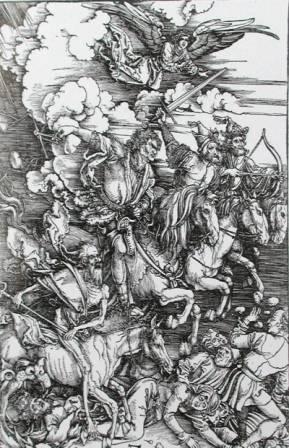 |
| HOME | GLOBAL | DISTRICTS | CLUBS | MISSING HISTORIES | PAUL HARRIS | PEACE |
| PRESIDENTS | CONVENTIONS | POST YOUR HISTORY | WOMEN | FOUNDATION | COMMENTS | PHILOSOPHY |
| SEARCH | SUBSCRIPTIONS | JOIN RGHF | EXPLORE RGHF | RGHF QUIZ | RGHF MISSION | |
|
|
|
|
|
Rain of Terror
I ran to the car and drove to my favorite bakery on Valley Mills this morning, and the only difference in this day was the rain, a real Texas downpour. Instinctively as an American, I had to run. Of course, I knew that I ran because I did not want to get wet. I drove to the gym to work out and again ran to the door to keep dry, not remembering that I always get wet as I do my normal twenty minutes on the stationary bike. On leaving, I ran to the car again and then I noticed a man in army camouflage fatigues walking slowly to the front door. There was no hurry, no extra effort. He seemed to know something about the rain that I had forgotten. On returning home, I thought of the contrast of walking outside in 2002 in Tbilisi, Georgia and now here, back home, in 2003 in Waco.
Waco, 2003: The other night I strolled out at 4:00 am and looked up at the stars. No one was on the street at that time. It was quiet and peaceful in the dark cool of the Texas, clear night.
Tbilisi, 2002: Our apartment on the second floor has two steel doors, with a heavy forged slide lock on the inside door, and bars on the windows (left over from Communist times). To get to our door, we walk up two flights of dark stairs. In the evening, when we go down to buy groceries and return home, the first action when entering the building is to look behind the entrance door in a dark corner where no one is hiding but the idea has been planted. Each time I enter I look.
Waco, 2003: In my study, at the computer, I listen to the rain making a soothing symphony of sound outside the double pane window. Since the storm obscures the sky, the lights are turned on. I am warm and comfortable.
Tbilisi, 2002: There has been no gas for a week, therefore no heat and no cooking. As I summon my resolve to meet the day and the practical matter of using the bathroom becomes more pressing, I move, get up quickly to dress in the multiple layers of clothes that are only a partial deterrent to the cold. The electricity goes off again (ten days in a row it has been off part of the time). Anne jokes, “Maybe we should go back to bed?” For a moment, I consider this wild idea and then reject it. When the temperature is low in the apartment, the freezing attacks the body but more it attacks the spirit.
Waco, 2003: Sitting here, with the rain still falling outside to wash the land and replenish the earth, I think of the play at MCC the other night called Metamorphosis where all the action takes place in and around a pool of water in the center of the stage. Water does make a change in our spirits and the world. As a faculty member, all I needed to do was call for my free tickets.
Tbilisi 2002: As I stood at the ticket counter, a large woman tried to edge her way in front of me, although she could see that I was being waited upon. Since I am also large, she did not get in front of me but I had to bodily make it clear that this would not happen. There is no concept of “waiting your turn”. Life here is a collective pushing in front of the line.
On this rainy day, with my thought in two cities, I wonder about the man in the service uniform who walked slowly in the rain, allowing its moisture to soak his garment. Had he walked in other rains in other places around the world? Was his life a tale of two changing cities, away and home? Had he come to the place in his mind where running from the rain was not the solution to staying dry? Was this physical rain a symbolic journey for this military gentleman of his job of defending freedom in a rain of terror? His face was set, his step sure and his destination known. Maybe that is the lesson that all of us in America should learn as we begin to adjust to living on this small globe. If we ever will see peace in our time, it will be because of leaders whose “step is sure and destination known!” |
| RGHF peace historian Joseph L. Kagle, Jr., 2006 |
